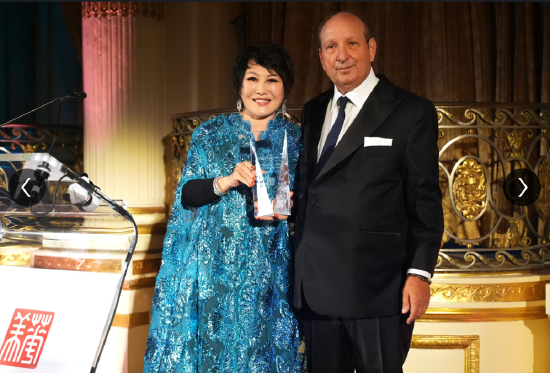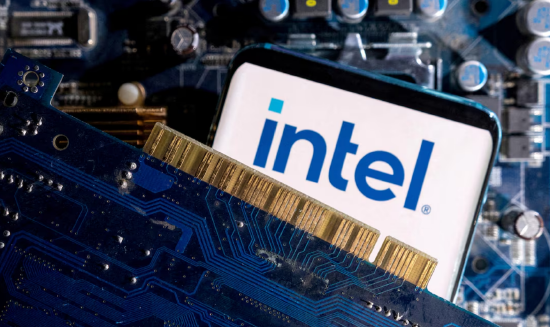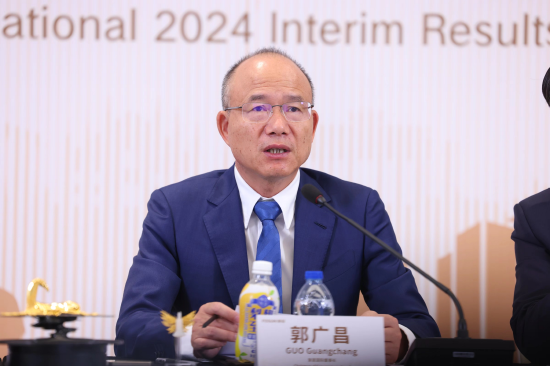CBN丨Foreign investment in China picks up in recent months
播放音頻
00:00/00:00
Hi everyone. I’m Stephanie LI.
Coming up on today’s program
- Foreign investors hike holdings of Chinese bonds by record levels;
- China unveils plan to boost “silver economy”.
Here’s what you need to know about China in the past 24 hours
Foreign investment in China is picking up as overseas investors made net purchases of Chinese onshore bonds for months, including a net purchase of $24.5 billion in December, the highest level in almost two years, the State Administration of Foreign Exchange said on Monday.
This came after foreign investors purchased a net $33 billion in onshore bonds, the second-highest on record, the administration said. In December, net capital inflow of foreign direct investment also jumped and came in at more than $10 billion.
According to data released by the People’s Bank of China’s Shanghai headquarters yesterday, non-Chinese institutional investors held 3.7 trillion yuan ($510.9 billion) of bonds in the interbank market as of Dec. 31, 2023, accounting for almost 3 percent of the total.
More than 1,100 foreign institutions have entered the Chinese bond market as of last year and more than 95 percent of them did that through the Bond Connect, a trading mechanism between the mainland and the Hong Kong SAR. In December, 10 new investors joined.
Trade in goods was also a major source of China’s cross-border capital flows. Inbound capital flows in this sector in December rose 12 percent year-on-year and 37 percent month-on-month, SAFE data showed.
Meanwhile, the administration also reported that Chinese banks saw a net forex settlement deficit of 31 billion yuan ($4.36 billion) in December. In yuan terms, forex purchases by banks exceeded 1.43 trillion yuan, and sales were approximately 1.47 trillion yuan.
In 2023, forex purchases by banks came in at 15.53 trillion yuan, and sales totaled approximately 16.06 trillion yuan.
“In general, China’s forex market in 2023 operated steadily while showing strong resilience. The yuan’s exchange rate remained stable and within a reasonable range starting in November 2023. The balance of international payments was stable and forex reserves were stable at more than $3.1 trillion throughout the year,” said Wang Chunying, deputy head of the SAFE.
- China’s State Council, the cabinet, on Monday unveiled a sweeping guideline on promoting the development of the “silver economy,” or the elderly care industry, catering to a rapidly aging population needing services ranging from meal delivery to nursing homes and entertainment options. China’s silver economy could reportedly be worth as much as 30 trillion yuan ($4.18 trillion) by 2035. The guideline contains 26 specific measures in four areas, including tackling urgent challenges faced by the elderly, expanding supply of elderly care products and services, and fostering industries with vast potential.
- China and Switzerland have completed the joint feasibility study on upgrading the China-Switzerland Free Trade Agreement (FTA) and agreed to support the early launch of formal FTA upgrade negotiations, the two sides announced on Monday during talks between Chinese Premier Li Qiang and President of the Swiss Confederation Viola Amherd in Bern, Switzerland. China also announced it will waive visa requirements for Swiss nationals while Switzerland said it will offer convenient visa processes for Chinese citizens and companies. Li is paying an official visit to Switzerland and is scheduled to deliver a highly anticipated speech at the Davos annual meeting on Tuesday.
- More than half of the Japanese companies with operations in China maintained or increased their investment in the country, according to an official survey. Fifteen percent of the about 1,700 Japanese firms in China polled by the Japanese Chamber of Commerce and Industry in China said they hiked their investment in the country last year from the previous one, while 38 percent claimed their investment in China remained unchanged in the period. Meanwhile, 25 percent of them reduced their investment, and the remaining 22 percent did not invest at all.
Greater Bay Area, Greater future
- Hong Kong Financial Secretary Paul Chan has held bilateral meetings with political and business leaders during the ongoing Davos meeting. Chan met Saudi Arabia’s finance minister Mohammed Al-Jadaan to discuss deepening financial and business cooperation. Chan also exchanged views with the Vice President of Nigeria, Kashim Shettima, on global economic developments. The finance chief also told representatives of two companies specializing in fintech and artificial intelligence that Hong Kong is pressing ahead with developing digital assets in a “prudent and orderly” manner, and he welcomes fiat-based stablecoin firms to establish themselves in the city.
- Seven companies based in the Greater Bay Area have joined hands to set up a new-type energy storage ecosystem in the area with new energy vehicles as a key part. Electric carmaker GAC Group, property developers Guangzhou Yuexiu Holding, Guangzhou Pearl River Enterprises Group, Poly Developments and Holdings Group, and China Vanke’s southern region division, home appliance giant Midea Group, and energy storage equipment supplier and energy storage project contractor China Southern Power Grid Technology signed a strategic partnership deal on Jan. 11, to give full play to their technological advantages to increase the intelligentization level of the automotive, real estate, and smart home industries and push for green transformation, according to the information released by these companies.
- Shenzhen is poised to log more than 1 trillion yuan in the sales of consumer goods last year as the tech hub becomes an increasingly popular shopping destination for those living in nearby Hong Kong. In the first 11 months, the retail sales of consumer goods in Shenzhen jumped 7.3 percent year on year to 950 billion yuan and is expected to top 1 trillion yuan by the end of December, according to data from the Shenzhen Municipal Bureau of Statistics.
- Nearly 70 trade groups from the mainland, Southeast Asia, the Middle East, Australia, the US and Europe, have confirmed their attendance at the 17th edition of the Asian Financial Forum in Hong Kong later this month, Chief Executive John Lee said on Tuesday. The number of speakers from the Middle East has increased from one or two to eight this time, whereas the number of those from ASEAN increased from five to 14, according to the CE.
Next on industry and company news
- Apple said it will launch a limited-time offer for the iPhone 13, the iPhone 14, the newly released iPhone 15 series, and some MacBook Air laptops on its website and brick-and-mortar stores in China to celebrate the upcoming Chinese New Year. Customers can save up to 500 yuan ($70) by using specific payment methods when buying an iPhone 15, iPhone 15 Plus, iPhone 15 Pro, iPhone 15 Pro Max, iPhone 14, iPhone 14 Plus, and iPhone 13 from Jan. 18 to 21, the US tech giant said yesterday. The 13-inch and 15-inch MacBook Air with M1 or M2 chips will be discounted by up to 800 yuan.
- Pilbara Minerals said Chinese battery materials supplier Ganfeng Lithium Group plans to nearly double its purchase of spodumene concentrate from the Australian lithium producer over the next three years to ensure the supply of raw materials despite tumbling prices. Pilbara Minerals and Ganfeng Lithium inked an amendment to their existing offtake deal yesterday. The purchase will rise to 310 kilotons per annum of spodumene concentrate from 160 ktpa, with the sales price to continue to be based on the prevailing market price.
- Sales of China-made automobiles to Russia soared 2.8-fold last year from 2022, as Russia becomes an increasingly important market for Chinese vehicle manufacturers. Chinese automakers including Chery, Great Wall and Geely sold 458,317 cars in Russia in 2023, accounting for 49 percent of Russia’s auto sales that year, according to data recently released by the Association of European Business.
Switching gears to financial news
- The number of Chinese companies that have received approval to list on overseas capital markets has jumped since the beginning of this year, encouraged by local regulators. Fourteen companies have obtained approval to list abroad from the China Securities Regulatory Commission this year as of yesterday. Some 91 other firms are in the queue, with 70 percent planning to list in Hong Kong and the rest on NASDAQ.
Wrapping up with a quick look at the stock market
- Chinese stocks rose on Tuesday as the benchmark Shanghai Composite and the Shenzhen Component each added 0.3 percent, while Hong Kong’s Hang Seng index sank 2.2 percent and the TECH index dropped 2.3 percent.
Biz Word of the Day
- The silver economy is the aggregate of a series of economic activities such as providing products or services to the elderly and preparing for old age, which is seen of huge potential.

Executive Editor: Sonia YU
Editor: LI Yanxia
Host: Stephanie LI
Writer: Stephanie LI
Sound Editor: Stephanie LI
Graphic Designer: ZHENG Wenjing, LIAO Yuanni
Produced by 21st Century Business Herald Dept. of Overseas News.
Presented by SFC
編委: 於曉娜
策劃、編輯:李豔霞
播音:李瑩亮
撰稿:李瑩亮
音頻製作:李瑩亮
設計:鄭文靜、廖苑妮
21世紀經濟報導海外部 製作
南方財經全媒體集團 出品
(作者:李瑩亮 編輯:和佳)



















